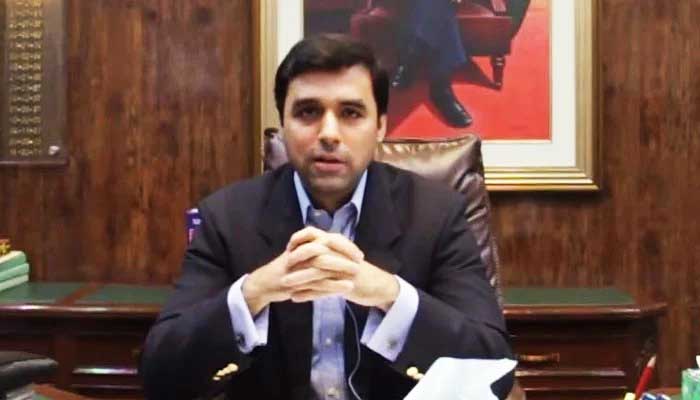TFD Report
KARACHI: The Karachi Water and Sewerage Corporation (KW&SC) has formally announced the upcoming appointment of a new Chief Executive Officer (CEO) and Chief Operating Officer (COO), a move approved by the corporation’s board. Advertisements for the positions will soon be published in newspapers, inviting applications from qualified candidates across Pakistan and abroad.
Until a permanent appointment is made, Ahmed Ali Siddiqui, currently serving as Deputy Commissioner West, has been appointed as interim CEO by the Sindh government. He will continue in this acting capacity while also holding the COO post until September 30, 2025. The CEO position became vacant following the resignation of Salahuddin Ahmed, whose original appointment was set to last until September 30, 2026.
Sources suggest that Ahmed Siddiqui has openly communicated to KW&SC officials that his appointment is temporary, and he does not possess the authority to make long-term administrative decisions.
Meanwhile, a flurry of activity has begun among senior bureaucrats and officials eager to secure the CEO role – widely perceived as one of the most lucrative administrative positions in the province due to the organization’s large budget and influence.
The Karachi Water and Sewerage Corporation was granted autonomy under the KW&SC Act No. PAS/LEGIS-B-06/2023, issued on July 5, 2023. The act aimed to depoliticize the utility and grant it operational independence. It mandated merit-based appointments for key executive positions, including CEO, COO, CFO, Chief Internal Auditor, and Legal Advisor. However, critics argue that political interference remains entrenched, with the Sindh government, led by the Pakistan People’s Party for the past 17 years, continuing to exert control over appointments and operations.
The law requires that CEO candidates be selected based on merit, with a preference for professionals from either the public or private sectors who have expertise in administration and a maximum age limit of 65 years. Furthermore, any appointment to advisory roles or newly created positions must be approved by the board.
Previously, a private consulting firm was hired by an international financial institution to manage the recruitment process for KWSC. However, that effort was marred by allegations of favoritism, as key positions were filled without adherence to merit, resulting in appointees who failed to complete their terms.
Sources allege that Salahuddin Ahmed, a civil engineer and former Project Director at KWSSIP, was appointed under questionable circumstances. The selection process excluded several highly qualified candidates, including PhD and master’s degree holders with international experience.
A former vice chairman of the corporation, Syed Najmi Alam, revealed that the consultancy firm – Saadat Haider & Co. – was directed to compile a shortlist limited to serving or retired Karachi-based officials, rather than considering a nationwide or international pool. This led to widespread criticism and accusations of deliberate manipulation. Out of 93 applicants from within Pakistan and abroad, only 13 were interviewed.
Notably, highly regarded candidates such as Zahid Azeer from Punjab’s Saaf Pani Project withdrew their applications, and others, like Nasir Ghafoor Khan of Peshawar WASA, were rejected by the board. Ultimately, Salahuddin Ahmed was selected, despite questions about his qualifications and the legality of appointing retired officials under Section 14(1) of the Civil Service Rules, which restrict post-retirement contract re-appointments. Experts and former executives argue that KW&SC, which serves the water needs of Karachi’s 20-million-strong population, requires a professional administrator – not a political appointee or engineer – to address chronic mismanagement, corruption, and the growing influence of tanker mafias.
Former MD Ghulam Arif called for a strong, independent administrator to steer the utility toward reform, warning that further political appointments could worsen the city’s water crisis. Water supply infrastructure is reportedly in a state of disrepair, with frequent pipeline failures leaving large parts of the city without access to clean water.
Meanwhile, illegal water tanker operations flourish, often with alleged protection from within the system. The board is expected to finalize eligibility criteria for the CEO post in accordance with the Act. Qualifications may include degrees in civil, electrical, or mechanical engineering; business administration; finance; commerce; or accountancy from accredited institutions.
Candidates must have at least 20 years of experience and be below the age of 62 at the time of application. The initial term is expected to be four years, extendable by another three. Upon appointment of the new CEO, the positions of Managing Director and Deputy Managing Director for Technical Services will be eliminated, streamlining the leadership structure.
With mounting pressure from civic leaders, financial institutions, and legal experts, the spotlight remains on KW&SC’s board to ensure a fair and transparent selection process – one that prioritizes Karachi’s public interest over political affiliations.




